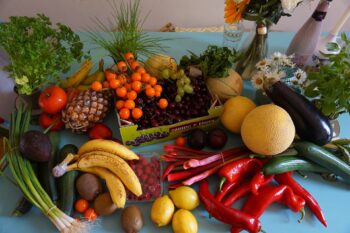 WHAT EXACTLY IS ORGANIC?
WHAT EXACTLY IS ORGANIC?
Welcome back to the Blog, everyone. It’s summer and the perfect time to review the basics of organic produce – which fruits and veggies we should buy organic and which fruits and veggies we shouldn’t.
First, it’s helpful to know that organic or organically grown are terms that generally refer to foods that have been produced without the use of pesticides, artificial fertilizers, preservatives, hormones or antibiotics. In addition, organic farming typically utilizes methods such as crop rotation, rotational grazing, intercropping, plant and animal waste recycling, tilling and natural mineral soil additives to promote biological diversity and ecological balance.
Of course, we all know that many of the above products that are so commonly used in agriculture for the good of the produce just aren’t good for us. Pesticides help keep bugs away from the crops and help ensure a longer shelf life. But they leave behind a pesticide residue that can be toxic when consumed by us – a concern that organic produce eliminates.
The lack of preservatives in organic produce also ensures that the products will be fresher — and fresher foods always taste better. Fresher foods also may mean the fruit or veggie contains more nutritional value than produce that has been sitting around for a longer period.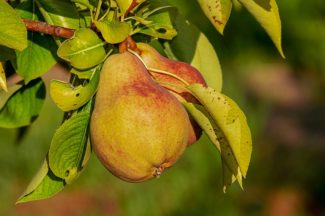
Now, it’s true that organic produce costs more than traditionally farmed produce. This is because the lack of pesticides in organic farming can result in greater crop losses and smaller yields. There’s simply less to go around. So, the product that does make it to the market may not be enough to satisfy consumer demand. And when the demand of anything is greater than the supply, the cost will always go up.
So, it’s important to balance the benefits you gain from buying organic versus non-organic. Conduct your own cost/benefit analysis. Ask yourself if the higher cost of purchasing organic is worth getting fresher, safer and healthier produce for you and your family. Is the cost worth the peace of mind you gain?
And by the way, no matter how you answer that question, it’s good to know that you don’t need to purchase organic all the time.
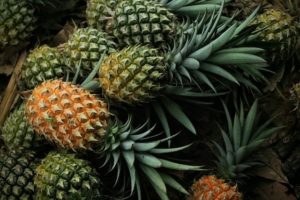 For example, fruits and veggies with thick rinds and skins typically don’t need to be sprayed with pesticides and herbicides even when traditionally farmed. This is because the edible part of the plant is naturally protected by the thick outer layers. And, even if they are sprayed, these thick-skinned products retain only trace amounts of pesticide residue if any at all.
For example, fruits and veggies with thick rinds and skins typically don’t need to be sprayed with pesticides and herbicides even when traditionally farmed. This is because the edible part of the plant is naturally protected by the thick outer layers. And, even if they are sprayed, these thick-skinned products retain only trace amounts of pesticide residue if any at all.
With that said, here are the top 8 Fruits That No One Has to Buy Organic:
Pineapple
Papaya
Cantaloupe
Watermelon
Honeydew Melon
Grapefruit
Mangos
Bananas
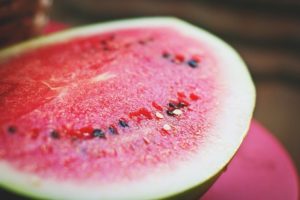 And not to be outdone, here are the top 8 Veggies That No One Has to Buy Organic:
And not to be outdone, here are the top 8 Veggies That No One Has to Buy Organic:
Onions
Avocados
Eggplant
Cabbage
Sweet Potatoes
Sweet Corn
Cauliflower
Winter Squash
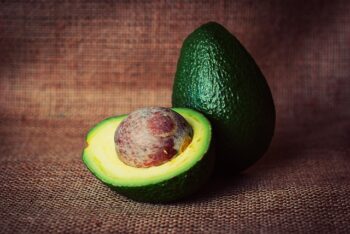 So, here we have eight fantastic fruits and eight wonderful veggies that everyone can enjoy. And better yet, they don’t need to be organic to be good for you.
So, here we have eight fantastic fruits and eight wonderful veggies that everyone can enjoy. And better yet, they don’t need to be organic to be good for you.
These products are always rated the safest and healthiest by consumer advocates year after year because if they retain any pesticide residue at all, it will only be in trace amounts.
HOWEVER — always remember that all produce — whether it’s organic or not — should be washed before eating — because pest res is not the only thing we want to avoid. We also want to avoid ingesting dirt, sand or any bacteria that might linger from the sneezing, coughing or touching of other shoppers, workers and employees tasked with bringing the product to market. Otherwise, relax, sit back and enjoy the incredible bounty this time of year has to offer – fabulous flavor and healthy, hearty benefits ensuring strong bodies, clear minds and loads of welcome energy.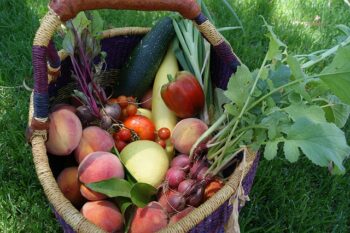
Thanks again for joining me everyone. Until next time, stay safe, stay well and . . . .
TAKE THE COURSE AND TAKE CHARGE!

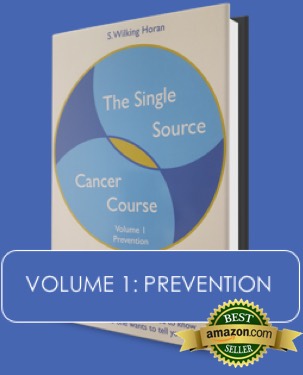
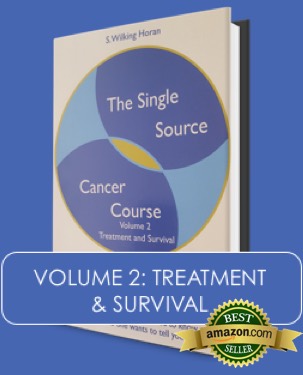
Leave a Comment